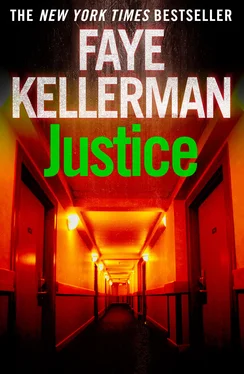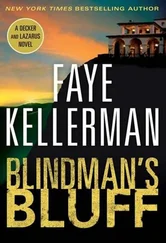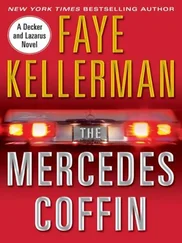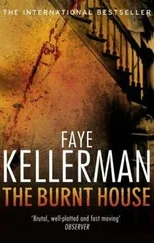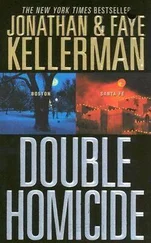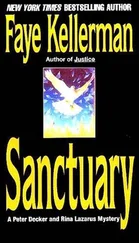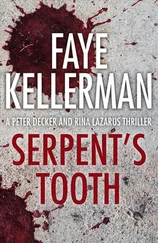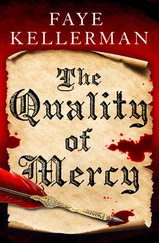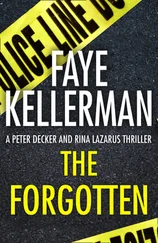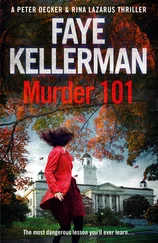“Coffee would be great.”
I marveled at my good fortune, having gained the better part of an hour. I put up coffee, then looked in the fridge. Jean had prepared a chuck roast. I took it out.
“This’ll be shoe leather if I cook it now,” I said to myself. “Maybe I’ll turn down the heat and roast it slowly.” I said it into the oven and turned the temperature to 300 degrees. Then I went into the laundry room and threw the wet clothes from the washer into the dryer. I came back into the kitchen and took out lettuce and tomatoes from the vegetable bin. I washed them under the tap, shook them dry, then started making the salad. I glanced up and saw Chris staring at me from the dining room. I was so caught up in my routine, I had forgotten about him.
I put down the lettuce and dried my hands. “Coffee’s almost done.”
He came into the kitchen. “Do you do this every day?”
“Do what?”
“The cooking, the laundry … child care?”
“They wrote a story about me. It’s called ‘Cinderella.’” I fetched down two coffee mugs. “Tell you one thing, though. I’m not waiting for Prince Charming. I’d rather have a maid.” I turned the coffeepot off and took out some milk and sugar. “How do you like your coffee?”
“Just black.”
“A real man.”
“Very macho.”
I loaded my coffee with the accoutrements, went back into the dining room, and took my datebook out of my backpack. “I’ve got an opening on Monday at eight. Or I can give you an hour on Thursday at eight—”
“Terry, why don’t you sit down and let me tell you what’s going on?” He showed me the chair. “Please.”
I sat, then wondered why I was listening to him. It was my house, but he was playing host.
He took a sip of coffee and looked at me earnestly. “If all goes well, I’m slated to go to the Eastman School of Composition in New York next fall. I squeaked by my junior year. This time I don’t know what’s flying. I’m not a great student, but I can pass tests if I concentrate.”
I nodded.
He flipped a chunk of blond hair out of blue eyes. “Also, I’m away a lot. I play gigs.”
“Gigs?”
“I do fill-ins for ensembles, orchestras, small chamber groups. Once in a while, I even do solos in some of the smaller towns for special occasions. It’s usually for only one or two performances. But my time away includes another day or two for practice beforehand. So I can be gone as much as a week at a time. I miss a lot of class.”
He sipped more coffee.
“I talked to Bull Anderson. He says you charge fifteen an hour.”
“That’s right.”
“Then you’re going to make out like a bandit from me. ’Cause I figure I need five days a week, ’bout two hours a day. I need a teacher as well as a tutor. Are you up for it?”
He stopped talking. I stared at him. “That’s one hundred fifty a week.”
“You can add.”
“Classical music must be a high-growth industry.”
“Money’s not a problem. You save your dollars, Terry, you can earn yourself a fine set of wheels by spring break. What do you say?”
I paused. “Sounds great in theory.”
“The money won’t be theoretical.” He stood. “We can start tomorrow. I’ll pick you up at ten to seven, take you to my place, and have you back here by a little after nine.”
“That’s a big commitment for me, Chris. I need time for my other students. Plus there’s my own studying.”
He sat back down. “How about this? I’ll pick you and your sister up from school every day. That’ll save you five hours just like that.”
“I still have other students—”
“Terry, why don’t you open your appointment book and we’ll go through it together. Find a schedule that suits both our needs.”
I was being pushed, but the money was too tempting to protest. I opened my datebook. With some rearranging and haggling, we decided on four days a week—two hours a day, with Wednesday our day off.
“Mondays and Fridays I can come to your place at seven,” I said. “But Tuesdays and Thursdays it would be better if you just came here right after school. Melissa goes to gym so we’d have privacy. Sound okay?”
He took a pen and a sheet of paper from his backpack. “Tell me the schedule you want.”
I dictated. He wrote. “You’re left-handed,” I said.
“Yeah.”
“Don’t you play cello right-handed?”
“Yeah.”
“Isn’t it hard?”
He looked up from his writing. “I don’t know any differently. I play all my instruments right-handed.”
“What else do you play?”
“Anything with strings.”
“Violin?”
“Yep.”
“Are you a prodigy on violin like you are on cello?”
“Why? You want to exchange violin for French lessons?”
“No, Chris. I think I’m hopeless.”
He studied at my face. “Violin’s a hard instrument.”
“You’re diplomatic. What else do you play?”
“Viola, bass, mandolin, guitar. I started guitar when I was about twelve. Picked it up like that.” He snapped his fingers. “But then my mother died and I was taken into custody by an old-fashioned aunt. She thought electric guitar was a very rude invention. I was instructed to find a more suitable instrument. You want to do Tuesdays and Thursdays here?”
“It really would be more convenient. Are you still in contact with your aunt?”
“Nope. She died two years after my mom.” He looked up. “Natural causes, Terry. She was in her sixties.”
“I didn’t say anything.”
“You had a look on your face.”
“Just because a sixty-year-old woman seems old to be your aunt.”
“Yeah, she was old and old-fashioned.” He flipped his hair back again. “But she wasn’t without her good points. She fancied herself a real classy lady. I was a punk when I went to live with her. She reinvented my life. Sent me to private school, taught me about music and art. She even gave me diction lessons. I useda towk like a real Noo Yowkeh.”
I smiled. “You should have given your accent to Blake Adonetti.”
That got a laugh out of him. Encouragement. I was on a roll. I said, “Yeah, Blake’s trying very hard to be the resident street guy. Someone should tell him that street guys don’t drive Porsches, they don’t have neurosurgeons for fathers, and they don’t live in ten-thousand-square-foot houses. They also don’t mousse their hair.”
He said, “How do you know Blake?”
“I tutored him for a couple of months—chemistry. His dad harbors hope that Blake’ll be a doctor.”
Chris said, “You tutored him, you tutored Bull.”
“Yeah, also Trish and Lisa for a while. I went through most of your group—”
“They’re not my group.”
His vehemence took me by surprise. I looked away. “Sorry I pigeon-holed you. It’s just that our class is so large, one is more or less defined by one’s clique.”
He said nothing.
I kept blathering on. “I mean everybody has to hang out with someone. Being a B.M.O.C. is infinitely better than being president of the nerd squad, the honored post occupied by yours truly.”
He was still stone-faced. I gave up. “I’ll need your backpack … to see what classes you’re taking.”
He dropped his knapsack to the floor. “Funny how we see ourselves. Guys I know don’t find you nerdy. Matter of fact, they think you’re very pretty. Just a little … frosty. But that’s okay. It’s good to be picky.”
I felt myself go hot. He told me he’d see me tomorrow. I nodded, keeping my eyes on my shoes. I knew he’d left when I heard the screen door slap shut.
In school, Chris stayed with his crowd, I stayed with mine. I’d have liked to talk to him, but one never crosses party lines unless invited to do so. And Chris didn’t hand me the scepter. So I looked on from afar, seeing him laugh with the beautiful people, Cheryl Diggs giving him neck rubs. A righteous-looking troop—both girls and guys being lean and lovely—typecast for a syndicated TV school serial. I guess I would have played the odd girl out. Because that was what I was.
Читать дальше
